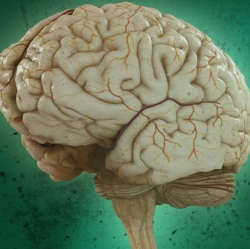
A nasal spray containing a specially-developed protein peptide could form the basis for highly-targeted treatment for depression, new research from the Centre for Addiction and Mental Health has shown. The peptide was found to relieve symptoms of depression, with the lead researcher hopeful of little to no side-effects.
The protein peptide was originally developed in 2010 by Dr. Fang Liu, Senior Scientist in the Campbell Family Mental Health Research Institute at CAMH. While the peptide was found to be just as effective as conventional anti-depressants when tested on animals, when administered orally it was unable to cross the blood-brain barrier in sufficient concentrations and therefore had to be injected into the brain.
A grant from the Canadian Institute of Health Research then enabled Liu and a team of researchers to explore other methods of delivery. In administering the peptide in the form of a nasal spray, the team found that it was delivered to the right part of the brain to relieve depression-like symptoms in animals.
Dr Liu’s team had previously found that a binding between two dopamine receptors, the D1 and D2 receptor complex, was higher in the brains of sufferers of major depression. The peptide works by interfering with the binding between these receptors, in effect, working as an anti-depressant.
